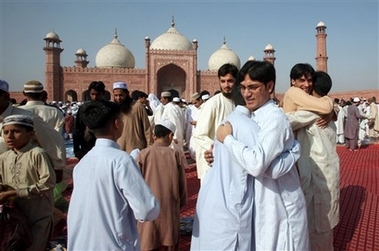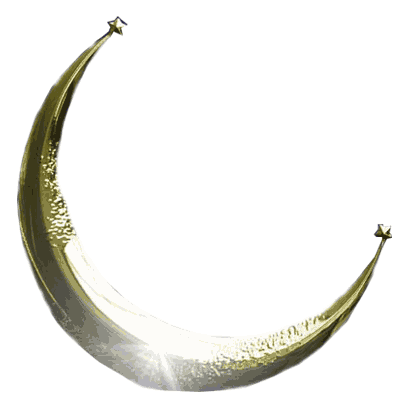India is considered to be a spiritual and holy land where several religions are followed and many deities are worshipped. In India, Hinduism, Islam, Buddhism and Jainism are the main religions which are rigorously practiced and followed. The other native Indian religions include Buddhism, Jainism, Sikhism, and Parsism.
Eid-ul-fitr, is also known as the “Festival of breaking of the fast”. It happens as soon as the new moon is sighted at the end of the month of fasting, namely Ramadan. This festival celebrates the end of Ramzan, the Muslim month of fasting. It is an occasion of feasting and rejoicing.
Fitr is derived from the word ‘fatar’ meaning breaking. Special foods and delicacies are prepared for the day and are distributed among neighbors and friends.
The devotees gather in the mosques to pray, friends and relatives meet and exchange greetings. Prayers, family get-togethers and feasts are the major highlights of the festival. Unlike most festivals, Ramadan doesn’t fall on any particular day. Ramadan is the ninth month of the Islamic year.
Eid-ul-filr lasts for three days of celebration and is sometime is also known as smaller Eid. Typically, Muslims wake up early in the morning(after the sunrise) and have a small breakfast for an example dry fruits etc. before attending a special Eid prayer, that are performed in the mosques or open area like fields etc. Muslims recite the “Takbir” which is a prayer glorifying the almighty. The Takbir consists of the lines:
Allaho-Akber, Allaho-AkberLa ila-ha ill-lal-lahAllaho-Akber, Allaho-AkberWa-lilahill hamd.
English translation:
Allah is great, Allah is great.There is no deity but AllahAllah is great, Allah is greatand all praises are for Allah.
Muslims are decorated themselves in their best cloths for the occasion. After the prayers, people also visit their relatives, friends and acquaintances. Before the Eid prayer begins, every Muslim who has some means must pay “Zakat al-fitr”, a sum to be donated for the month of Ramadan, to destitute Muslims living nearby. The “Zakat al-fitr” equates to about 2 kg of a basic foodstuff (wheat, barley, dates, raisins, etc.), or its cash equivalent, and is typically donated at the mosques. The donation is given during the early days of Ramadan so that the recipient can use it for Eid purchases.
The prayers over, it is time for 3-day long festivities to be observed in every home.
Although this is a festival of the Islam followers but in the secular nation of India, everybody takes part in the celebrations, irrespective of caste, creed, status and age.













0 comments:
Post a Comment